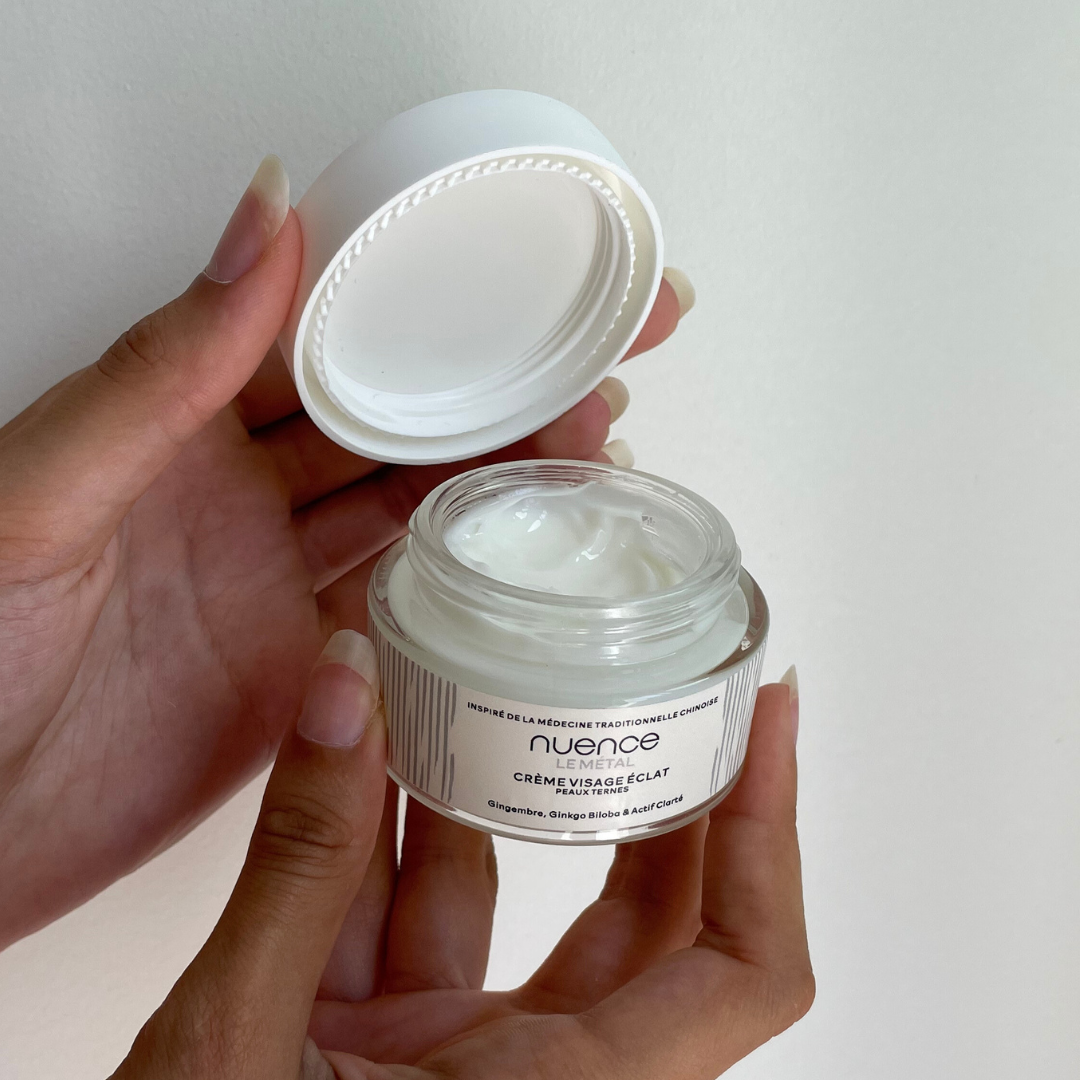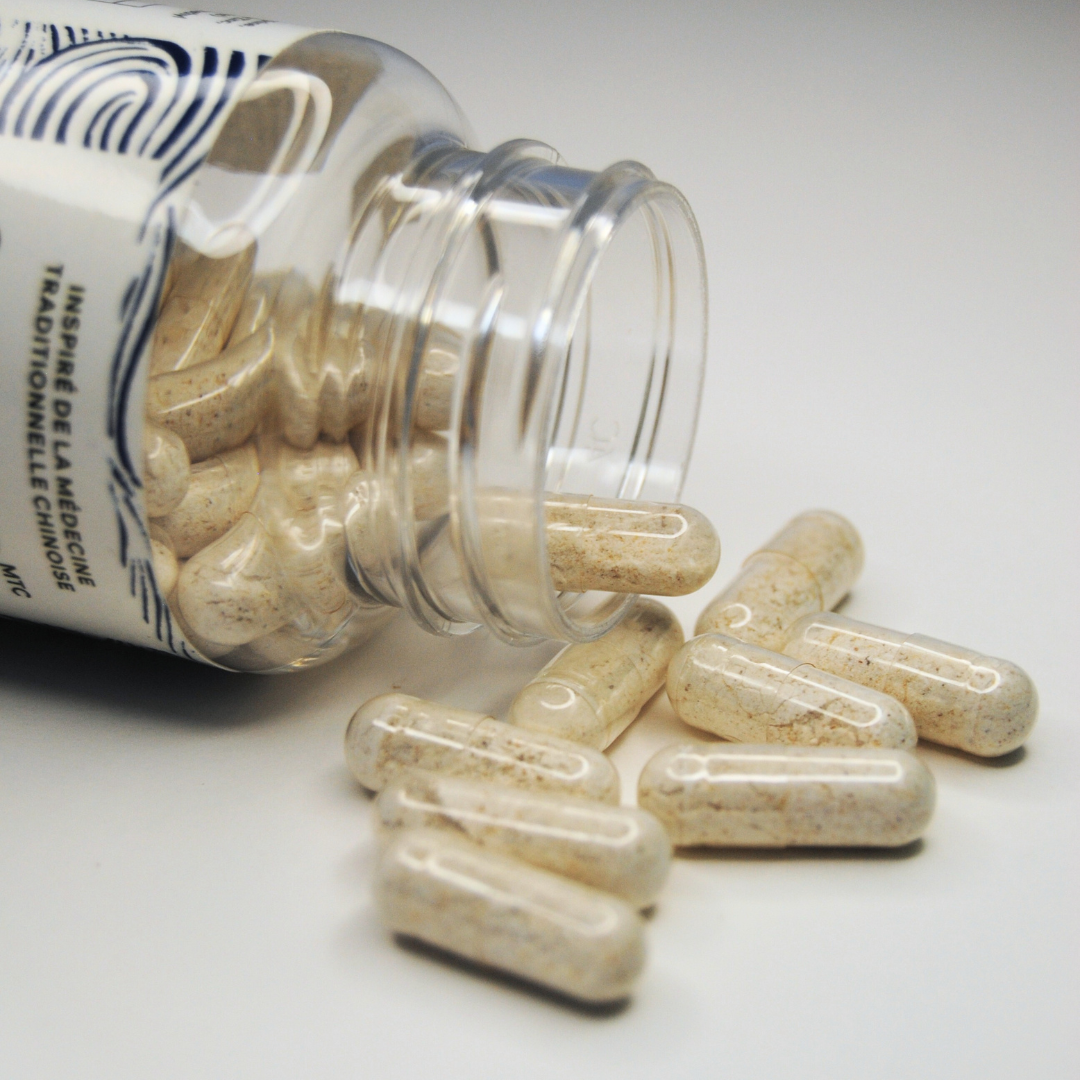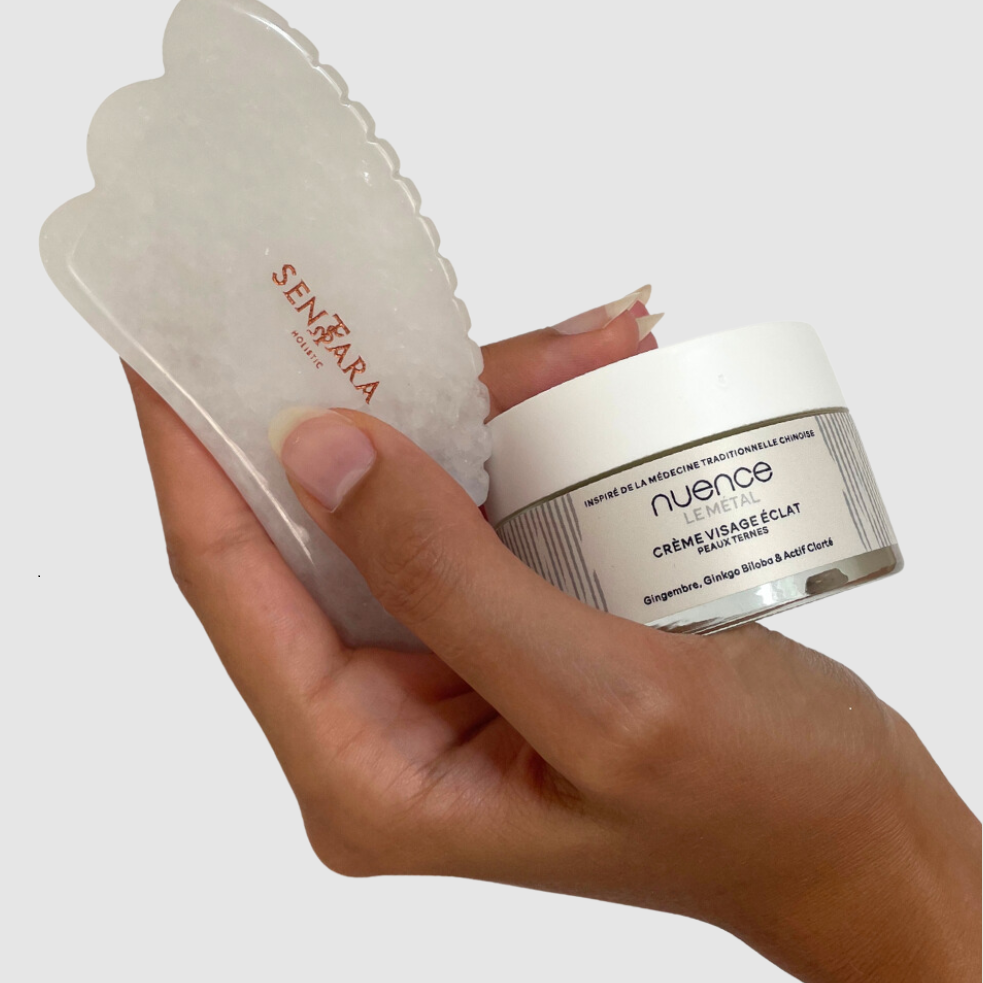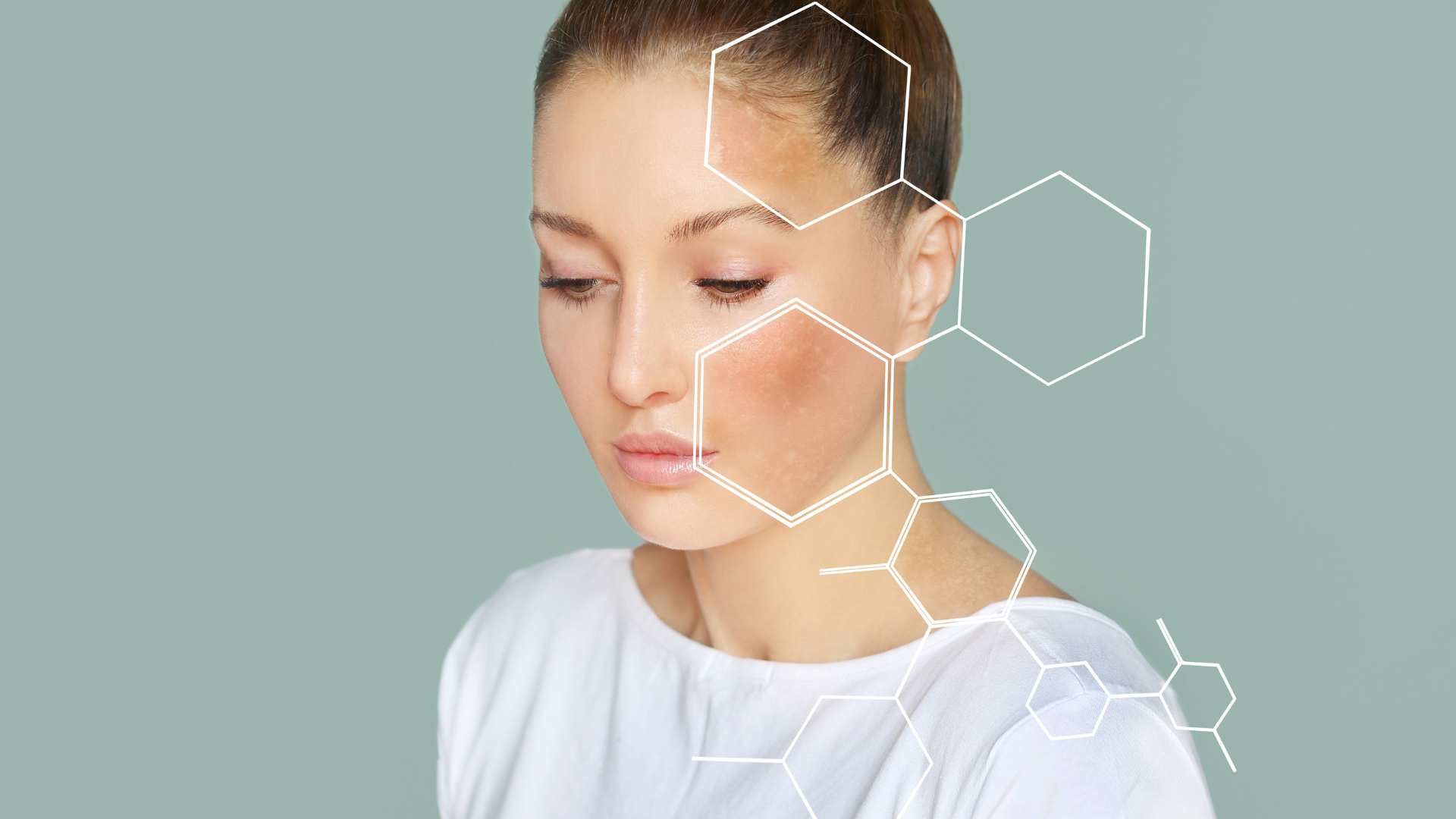The skin barrier is the skin's first line of defense against external aggressions. When it is weakened, it can lead to sensitivity, dryness, redness, and irritation. It is therefore essential to adopt protective measures and a comprehensive approach to preserve and strengthen it. In this article, the Nuence MTC team reveals scientific insights, the energetic vision of TCM, and practical advice for taking care of your skin every day.
1. The skin barrier: its composition and role
The skin barrier is a complex system that involves several biological and chemical elements to ensure optimal protection.

a) stratum corneum and keratinocytes:
The stratum corneum is the outermost part of the epidermis and provides a physical barrier, notably due to its continuous regeneration through keratinization and desquamation. Keratinocytes are the cells of the stratum corneum that play a fundamental role in the skin barrier because they are responsible for the production of keratin , an essential protein that strengthens the skin.
These cells undergo a cycle of proliferation, differentiation and desquamation, which allows the stratum corneum to be constantly renewed and the integrity of the skin barrier to be maintained.
b) The epidermis is covered with a hydrolipidic film:
It is a mixture of sebum, water, and sweat that protects the skin. This film plays a crucial role in forming an additional barrier against foreign substances. It also allows for good hydration regulation of the stratum corneum by preventing water loss. Finally, the acidity of this film is essential, as explained below. It is lactic acid and pyruvic acid from sweat as well as fatty acids from sebum which are responsible for the acidity of the skin film.

This acidic pH:
- promotes the activity of enzymes involved in the synthesis of ceramides , fatty acids and cholesterols, which are the main lipids of the skin barrier.
- allows cells to be properly linked together in the stratum corneum , ensuring effective protection against dehydration and external aggressions.
- limits the proliferation of pathogenic bacteria and promotes beneficial microorganisms, which contribute to the stability of the lipid barrier.
- controls the activity of proteases , enzymes that regulate cell renewal and the breakdown of lipids, thus preventing skin that is too dry or too oily.
It is therefore very important to maintain it at its physiological value of 5.5 on average.
c) Skin microflora (or microbiome):
Composed of bacteria and yeasts, this skin flora plays an essential role in defending the skin against pathogens. Its balance is fundamental to maintaining healthy and resilient skin. In addition to preventing the development of pathogenic flora—responsible for infections and inflammation—it participates in regulating the skin's pH and ensuring the proper functioning of the protective barrier. Various factors such as stress, pollution, excessive use of harsh products, or an unbalanced diet can disrupt this microbiome.
d) Natural Moisturizing Factors (NMF) :
These are substances naturally present in the stratum corneum of the skin. They are hygroscopic , meaning their main role is to retain water and maintain optimal hydration. They are composed mainly of amino acids, urea, lactic acid, mineral salts and sugars, which help preserve the skin's water balance. Approximately 30% of the dry weight of the stratum corneum is made up of NMF. These also help maintain the skin's elasticity and suppleness.
Their concentration can be affected by factors such as aging, sun exposure, excessive cleansing and things that weaken the skin barrier.
Among the NMFs, hyaluronic acid , a polysaccharide that can retain up to 1000 times its weight in water, is certainly the best known to the general public.
It is necessary to distinguish between the different sizes of hyaluronic acid molecules:
-
High molecular weight : remains on the surface and forms a protective film which limits water loss.
-
Low molecular weight : penetrates deeper and stimulates the natural production of hyaluronic acid and collagen.
2. Energetic interpretation by TCM:
In Traditional Chinese Medicine (TCM), the skin barrier is more than just a physical shield: Scholars of ancient China had a vision holistic and energetic of this barrier, conceptualized by defensive energy Wei Qi . This energy circulates on the surface of the body and acts as a natural shield against external aggression, but also internal imbalances.
Although this protective system does not correspond to the biological definition of our immune system, it is possible to draw a parallel between the two. This energy circulates very quickly (it makes a complete circuit of the meridians in 28 minutes 48 seconds) and nourishes all our tissues, even the most superficial, the skin. By controlling the opening and closing of pores and interstitial spaces, Wei Qi regulates perspiration and body temperature.
The concept of Wei Qi , shows that the importance of this protective envelope was understood very early, even before the progress of science established the existence of the skin barrier as an essential biological structure. fundamental principles of TCM and modern discoveries therefore converge on the importance of well-protected and balanced skin !
When Wei Qi is weakened, the skin becomes more vulnerable: it can react with excessive dryness, irritation, increased sensitivity or slowed cell regeneration. In TCM, a Wei Qi imbalance is often linked to a weakening of the Lung and of the Spleen , organs responsible for the assimilation of energy and its proper distribution in the body.
3. Tips and best practices to protect your skin barrier:
-
Topical hydration : Use skincare products that are suited to your skin type and rich in ceramides, fatty acids, and humectants (such as hyaluronic acid). In the NUENCE MTC collection, you will find products formulated specifically for certain skin types. The rich anti-aging cream L"EAU, for example, contains 3 excellent natural emollients that are certified organic and rich in fatty acids. essentials:
- First-pressed shea butter – Product from organic farming, containing oleic, stearic, linoleic, palmitic and many other acids.
- Organic virgin sunflower oil , first cold-pressed. It is rich in essential fatty acids, such as linoleic acid.
- Organic extra virgin olive oil , also very rich in essential fatty acids.

- Action from the inside : Take nutricosmetics which, thanks to their vitamin and antioxidant content (A, C, E, zinc, selenium), fight against oxidative stress and help with cell regeneration . Supplements rich in probiotics and prebiotics promote a balance of the skin microbiome , essential for defense against external aggressions. Finally, supplements based on hyaluronic acid or collagen improve the hydration and resilience of the skin . A combined approach between nutricosmetics and topical care is ideal for protecting and strengthening the skin barrier! It is for this purpose that the Nuence MTC collection has been enriched with an In&Out Anti-Aging Ritual .

- Gentle cleansing : Avoid harsh cleansers that damage the hydrolipidic film.
Choose sulfate-free cleansers with a neutral or slightly acidic pH to respect the skin's balance. Also, limit the excessive use of exfoliants and overly powerful active ingredients that alter the natural barrier.
- Sun protection : UV rays weaken the skin barrier, so apply a daily sunscreen of at least SPF 30 to avoid this damage and opt for formulas enriched with antioxidants for a reinforced shield against external aggressions.

To strengthen Wei Qi and by extension the skin barrier, TCM recommends a comprehensive approach that includes:
- Exercises of deep breathing and the practice of Qi Gong which helps to fluidify energy and strengthen the body's natural defenses.
- Medicinal plants – Certain herbs, such as Astragalus (Huang Qi) and Ginseng, are known for their tonifying action on Wei Qi. The use of Ginseng (Ren Shen) dates back more than 5,000 years in Korea and China, where this plant was considered a miracle cure for all ills. At Nuence-MTC, this adaptogenic plant is highlighted in the Vitality Face Cream : the exceptional composition of this root revitalizes dull skin and hair thanks to the numerous ginsenosides that stimulate and activate skin microcirculation.

- Hydration through food (see chapter below)
4. The importance of nutrition
Diet plays a key role in skin health. With an in-and-out approach that combines topical care and internal nutrition, skin stays well protected and, above all, well hydrated.
Indeed, the skin is made up of 70% water, 80% of which is stored in the dermis. This water will gradually migrate from the lower layers to the outer layers until it evaporates through the skin barrier.
It's important not to confuse dry skin with dehydrated skin. Dehydrated skin is skin that occasionally lacks water: it's a skin condition. Dry skin, on the other hand, is a skin type: skin that lacks oil and is often a constant biological fact. Oily skin can also be dehydrated!
To learn more about this topic, you can read our previous article on skin types.
Dehydrated skin can be recognized by the discomfort it causes. This can manifest itself through redness, irritated areas, fine lines around the eyes or lips, feelings of tightness, a dull complexion, etc.
How to hydrate your skin from the inside through diet?
Drink water regularly
To keep your skin hydrated, the first thing to do is drink water. Drinking between 1.5 and 2 liters of water per day allows the hydrolipidic film to renew itself. Vary between spring water, mineral water, and tap water.
Hot water is hydrating.
Drinking hot water is even more hydrating. It allows you to hydrate without creating a thermal shock in the body and without having to expend energy to cool or heat it. Drink herbal teas and hot teas is therefore an excellent method for naturally hydrating your skin.
Tea and its antioxidant properties
Green tea has beneficial effects on the skin Given its richness in antioxidants, it helps prevent cellular aging and eliminate accumulated toxins.
As recommended in our article dedicated to the virtues of tea , it is advisable to drink a herbal tea or tea per day.
Eat foods rich in water
It's advisable to focus on a diet based on fruits and vegetables, which are rich in water, much more so than those based on proteins and starches. To hydrate your skin from the inside out, it's best to choose foods that are more than 80% water: cucumber, lettuce, zucchini, tomato, watermelon, melon, berries, citrus fruits, apples, grapes, and dairy products. For the most part, their richness in vitamins and minerals also allows them to deeply nourish the epidermis.
Avoid excess alcohol, sugar and fat
For proper skin hydration, it's important to limit inflammatory foods as much as possible. A diet high in sugar and fat can deteriorate skin quality. Avoid excess alcohol, sugary drinks, meat or cold cuts, milk or cheese, and processed or industrial products.
Promote essential fatty acids
Essential fatty acids (omega-3 and omega-6) provide suppleness and elasticity to the skin and help reduce skin inflammation. The best sources of good fats are avocado, oily fish ( salmon, herring, sardines, mackerel), nuts (walnuts, almonds, hazelnuts ), and unheated vegetable oils ( rapeseed, flax, olive ).

Select foods rich in vitamins and carotenoids
It is recommended to choose foods rich in vitamins. Vitamins C and E have antioxidant properties that allow them to protect the skin from harmful agents and accelerate healing. They also stimulate collagen production and thus increase the elasticity and suppleness of the skin by maintaining skin hydration. Vitamin E is present in avocados, dried fruits, seeds, almonds, hazelnuts and vegetable oils . Vitamin C is found in citrus fruits, kiwi, bell peppers, kale and broccoli.

Carotenoids , on the other hand, contribute to good hydration and elasticity of the skin, and often contain provitamin A. The latter promotes cell renewal. Carotenoids are present in carrots, melon, tomatoes, parsley, lamb's lettuce, watercress, watermelon, spinach and kale.
To conclude
The skin barrier is more than just a shield: it's essential for skin balance and health. When it's weakened, the consequences quickly become apparent—dryness, increased sensitivity, irritation, and more. Adopting a comprehensive approach that combines hydration, protection, and nutrition helps strengthen it sustainably and preserve its integrity.
By integrating appropriate care and taking into account the energetic vision that TCM brings us on this subject, everyone can offer their skin the optimal conditions to radiate and resist external aggressions.
What if the key to glowing skin lay in respecting this natural barrier? And you, what habits do you plan to adopt to better protect it on a daily basis? 🌿😊








